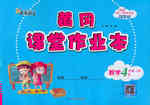题目内容
Memory is the ability to keep track of things that have happened in the past. Memory really is learning. One needs memory to ride a bicycle. A dog needs to remember if it is to come when called.
Memory is said to be stored in the brain as a “memory trace(记忆痕).” What makes up this trace is not known. Some scientists believe that certain chemical substances may carry certain memories. For example, one substance, when given to rats, causes them to fear the dark.
Other research into memory has to do with how the brain works. Psychologists use three means to find out how a person remembers. For example, give a person a grocery list. Let the person memorize the list, then put it away. The most natural way to find out how much a person remembers of the grocery list is to ask what he or she remembers. This is called the method of recall. Another method is called recognition. Give the person another grocery list. Ask him or her to choose items on the first list from the items that are on only the second list. Often a person will be able to recognize things that he or she cannot recall. A third method of finding how much a person remembers is called relearning. Here the person is asked to read over the first list. The person will probably learn the list the second time faster than he did the first time. The difference in the time it takes to relearn the list is thought of as a measure of how much a person has remembered.
One way of remembering something is to repeat it many times. Interest is very important. Boring lists of facts are much more difficult to remember than something that we understand and are interested in. Motivation, or wanting to do something, is also important. Motivation is linked with reward. For example, a hungry animal quickly learns how to do something if that action gets the animal food. In humans, wanting to learn is often motivation. The praise of a teacher or the knowledge that an answer is correct is rewarding.
1.We can learn from the 2nd paragraph that ___________ .
|
A.bad memories may cause rats to fear the dark |
|
B.it is hard to tell what a memory trace consists of |
|
C.chemical substances carry certain memories |
|
D.memory is stored in the brain as a substance |
2.The way to pick out the items on the first list from the second is known as ________ .
|
A.recognition |
B.recall |
C.memorization |
D.relearning |
3.What is considered as a measure of how much one has remembered?
|
A.The length of the list. |
|
B.The type of list items. |
|
C.The time difference of relearning. |
|
D.The time difference of brain working. |
4.A good way to train an animal to do something quickly is to ________.
|
A.make the action easy |
B.praise it in words |
|
C.reward it with food |
D.weaken its motivation |
1.B
2.A
3.C
4.C
【解析】文章向我们解释了记忆的原理。
1.细节题。根据第二段第2句What makes up this trace is not known.可知B正确。
2.推理题。根据第三段第5行Give the person another grocery list. Ask him or her to choose items on the first list from the items that are on only the second list.可知从第2个列表中把第一个列表中的物体挑出来称为再现。
3.细节题。根据文章第三段最后一句The difference in the time it takes to relearn the list is thought of as a measure of how much a person has remembered.
4.推理题。根据最后一段4,5行For example, a hungry animal quickly learns how to do something if that action gets the animal food.可以推断训练动物做事情最好的方法就是用食物奖励。

 中考利剑中考试卷汇编系列答案
中考利剑中考试卷汇编系列答案 教育世家状元卷系列答案
教育世家状元卷系列答案 黄冈课堂作业本系列答案
黄冈课堂作业本系列答案Memory is the ability to keep track of things that have happened in the past. Memory really is learning. One needs memory to ride a bicycle. A dog needs to remember if it is to come when called.
Memory is said to be stored in the brain as a “memory trace(记忆痕).” What makes up this trace is not known. Some scientists believe that certain chemical substances may carry certain memories. For example, one substance, when given to rats, causes them to fear the dark.
Other research into memory has to do with how the brain works. Psychologists use three means to find out how a person remembers. For example, give a person a grocery list. Let the person memorize the list, then put it away. The most natural way to find out how much a person remembers of the grocery list is to ask what he or she remembers. This is called the method of recall. Another method is called recognition. Give the person another grocery list. Ask him or her to choose items on the first list from the items that are on only the second list. Often a person will be able to recognize things that he or she cannot recall. A third method of finding how much a person remembers is called relearning. Here the person is asked to read over the first list. The person will probably learn the list the second time faster than he did the first time. The difference in the time it takes to relearn the list is thought of as a measure of how much a person has remembered.
One way of remembering something is to repeat it many times. Interest is very important. Boring lists of facts are much more difficult to remember than something that we understand and are interested in. Motivation, or wanting to do something, is also important. Motivation is linked with reward. For example, a hungry animal quickly learns how to do something if that action gets the animal food. In humans, wanting to learn is often motivation. The praise of a teacher or the knowledge that an answer is correct is rewarding.
【小题1】We can learn from the 2nd paragraph that ___________ .
| A.bad memories may cause rats to fear the dark |
| B.it is hard to tell what a memory trace consists of |
| C.chemical substances carry certain memories |
| D.memory is stored in the brain as a substance |
| A.recognition | B.recall | C.memorization | D.relearning |
| A.The length of the list. |
| B.The type of list items. |
| C.The time difference of relearning. |
| D.The time difference of brain working. |
| A.make the action easy | B.praise it in words |
| C.reward it with food | D.weaken its motivation |
Some people have very good memory(记忆力) and they can easily remember quite long texts. There are other people who can only remember things when they have said them again and again. The famous English writer Charles Dickens said that he could walk down any long street in London and then tell you the name of every shop he had passed. Many great men of the world have a wonderful memory.
A good memory is greatly helpful in learning a language. Everybody learns his own language by remembering what he hears when he is a small child, and some children, like the boys and girls who live abroad(国外) with their parents, seem to learn two languages almost as easily as one. In school it is not so easy to learn a second language because the students have so little time for it, and they are very busy with other subjects too.
A man’s mind is like a camera, but it takes photos not only of what we see but also of what we feel, hear, smell and taste. When we take a real photo with a camera, Some people have very good memory(记忆力) and they can easily remember quite long texts.In the same way, there is much work to be done before we can keep a picture forever(永远) in our minds.
Memory is a diary, and we all carry it about us. We keep things we have experienced (经历)in this diary.
【小题1】Which of the following is true?
| A.Charles Dickens had a good memory because he was a famous writer. |
| B.People without a good memory cannot be great men of the world. |
| C.People became great because they have a good memory. |
| D.Many people may never become great though they have a good memory. |
| A.live abroad | B.write it every day |
| C.often hear it | D.go to school |
| A.what we see |
| B.what we feel and hear |
| C.what we smell and taste |
| D.what we see, feel, hear, smell and taste |
| A.you can learn a second language easily |
| B.you can remember things for ever easily |
| C.you can learn your own language easily |
| D.you can remember things better |
| A.We all keep a diary in our mind. |
| B.One has to do a lot of work before he can keep a picture in his mind forever. |
| C.A person with a good memory can remember things forever. |
| D.A good memory helps to remember everything forever. |